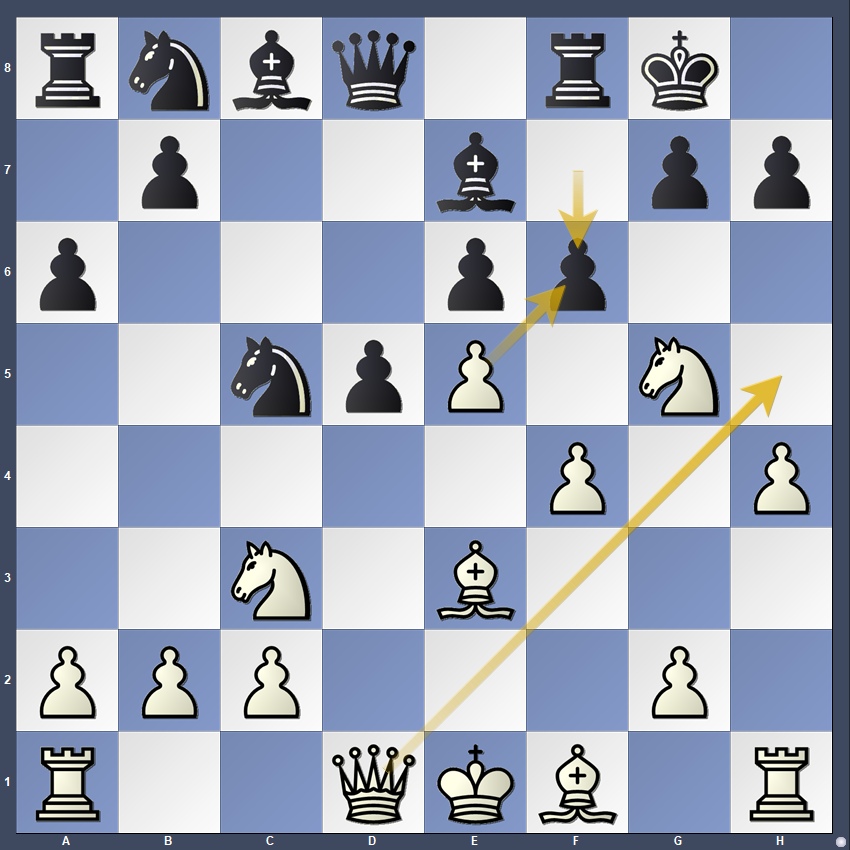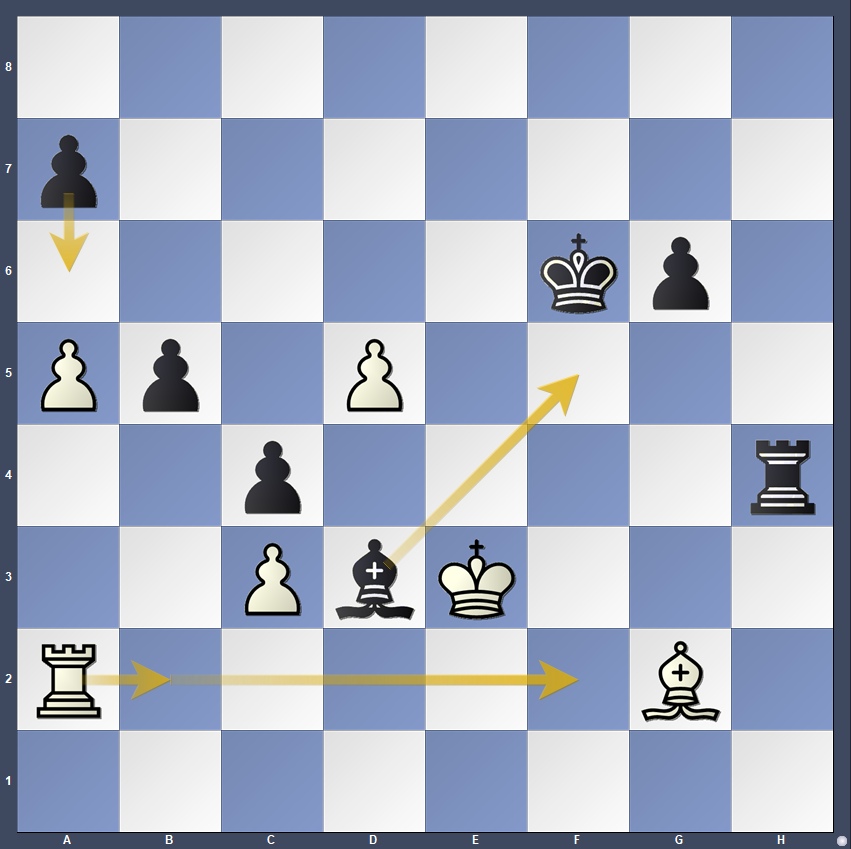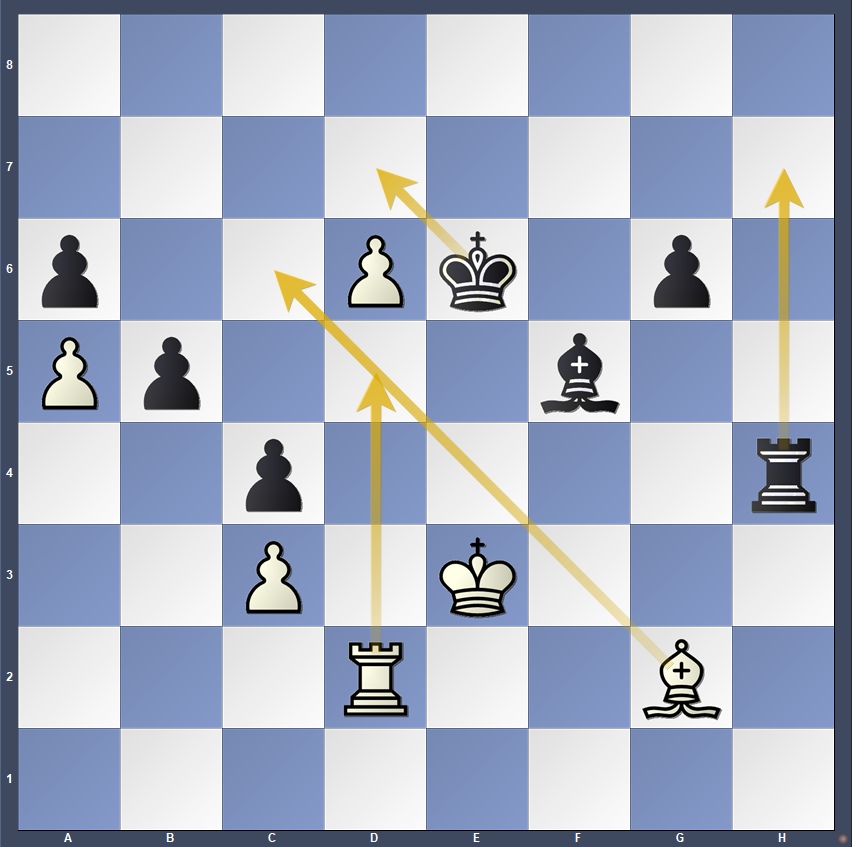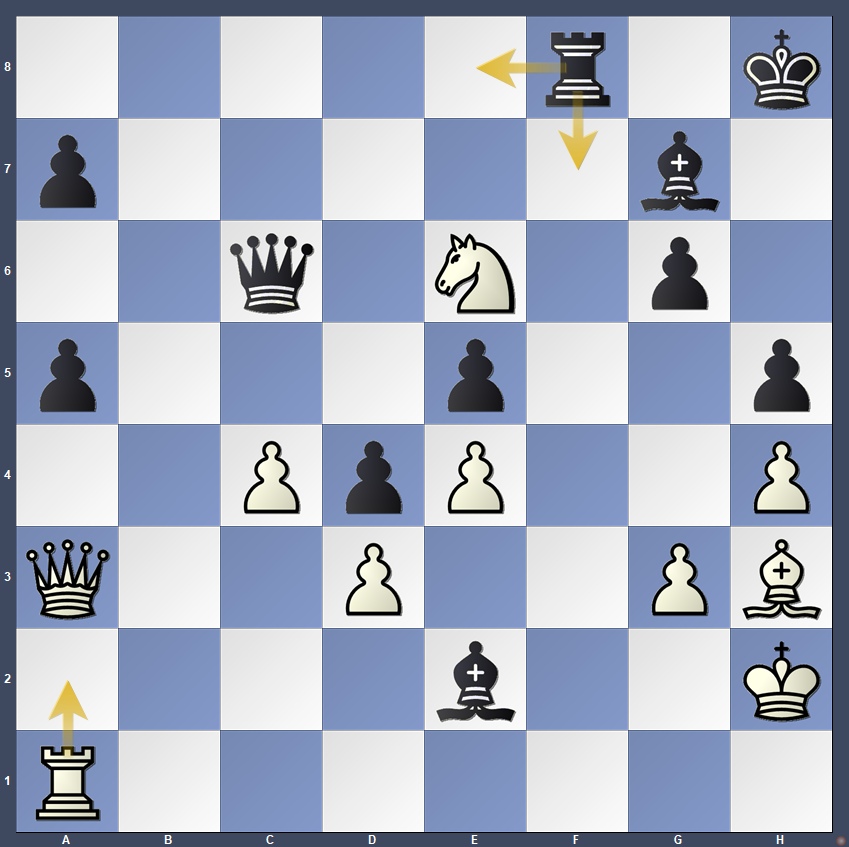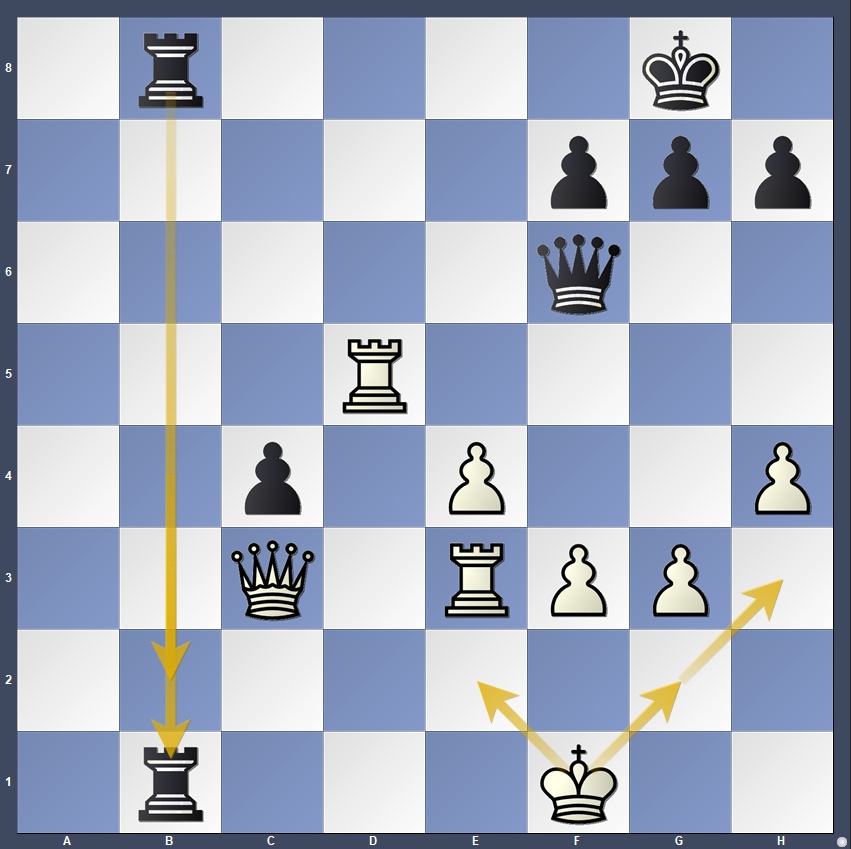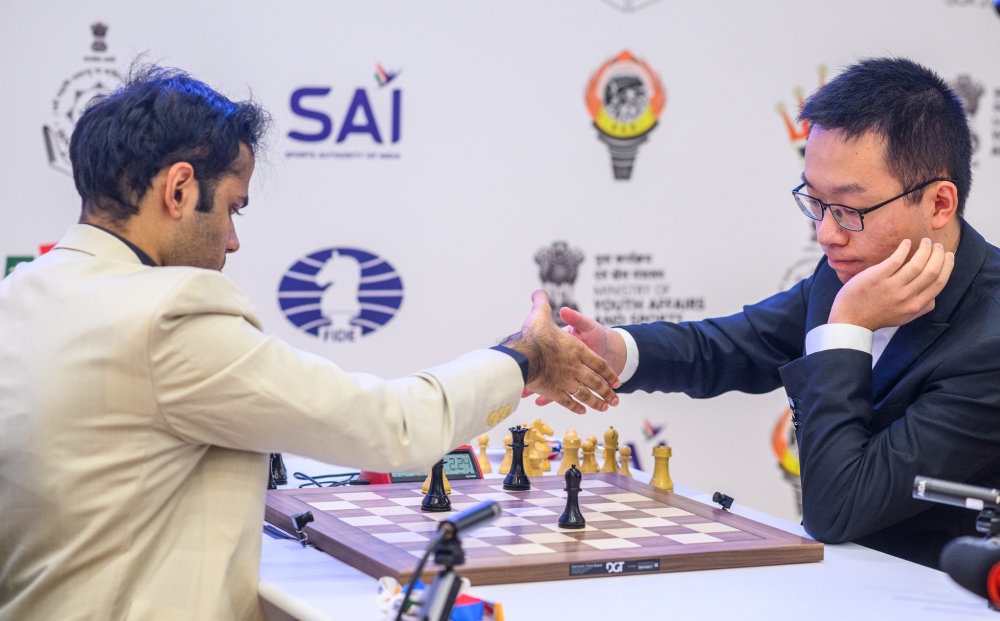
Four draws yesterday left three semi-final spots undecided and brought six players to what may be the most stressful point of the World Cup so far. With everything riding on the rapid and blitz tiebreaks, the atmosphere in the hall was tense long before the clocks started. Spectators filled the room early, aware that today would determine who would keep their Candidates hopes alive.
When the day concluded, Wei Yi, Javokhir Sindarov and Andrey Esipenko all won their matches, joining Nodirbek Yakubboev who had qualified the previous day. It was also a heartbreaking afternoon for Indian fans as Arjun Erigaisi, the last remaining home player, was knocked out by Wei Yi.
Before play began, the ceremonial first move was made on Board 1 of Martínez vs. Sindarov by Mr. Jayant Chaudhary, Union Minister of Skill Development and Entrepreneurship and Minister of State for Education, Government of India.
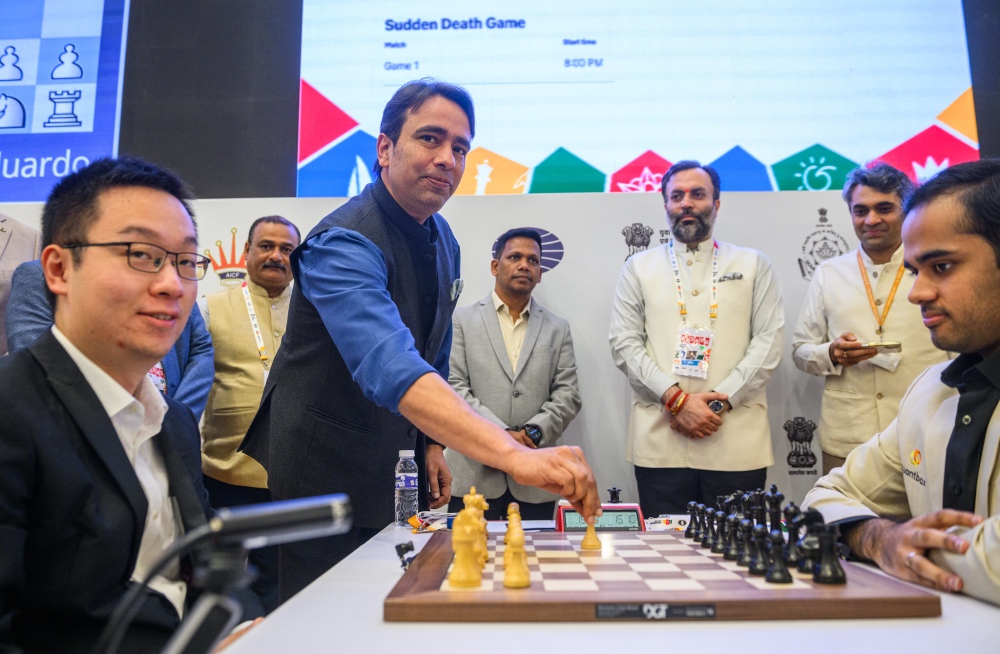
With pressure high across all boards, here is how the quarterfinal tiebreak battles unfolded.
QuarterfinalsTiebreak Results
- Arjun Erigaisi ½-1½ Wei Yi
- José Eduardo Martínez Alcántara 1½ -2½ Javokhir Sindarov
- Andrey Esipenko 3-1 Sam Shankland
Wei Yi (2752) vs Arjun Erigaisi (2773)
After yesterday’s classical game, in which the Chinese Grandmaster missed key moves and gave his opponent a chance to strike, Wei Yi made sure not to allow Arjun Erigaisi the same opportunity again. Arriving first to the hall today, he looked composed and focused, not a single leg shake, and ready to fight from game one. In the Steinitz Variation of the French Defense, Wei Yi, with the White pieces, launched an early kingside assault, steering the game into the kind of sharp tactical battle that suits his style and attacking instincts. The position was easy for Black to mishandle, and Arjun did exactly that after spending six minutes (a significant amount of time in rapid) selecting the worst move:
Black has just played 10…f6?, allowing White to ignore the threat on the knight and play the immediate 11.Qh5!, followed by capturing on c5 and planting the queen on g6 for a direct assault on the king. Instead, Wei Yi chose 11.exf6, and after 11…Rxf6, Black remained worse, but the attack was at least more manageable. Eventually, White picked up the exchange on move 14, although, according to chess engines castling long first offered him the decisive advantage. Still, Wei Yi played with impressive accuracy up to a certain point but let his advantage slip away in time pressure. With the bishop pair, Arjun managed to simplify into equality and save the game with a draw.
It was already a nerve-wracking start, and then came game two. A Petroff Defense where both players appeared well prepared led to a queenless middlegame. Though the young Indian Grandmaster seemed to be faring better than in the first encounter, he overpressed and struggled to coordinate his pieces. Indian fans may have felt relieved when the position liquidated into a stable endgame, until a critical moment unfolded and one lost tempo tilted the balance decisively:
Here, Erigaisi played 41.Rf2+?, allowing 41…Bf5 42.Rb2 a6 43.d6 Ke6 44.Rd2 Bd3. The check was unnecessary; better was 41.Rb2 immediately, followed by 41…a6 42.d6 Bf5 43.Rd2. If 42…Ke6, then 43.Bb7 holds, as Black’s rook checks are harmless due to the bishop on d3.
Another key moment, and Arjun’s final chance to save the game, came just a few moves later.
Here Wei Yi erred with 46…Rh7? (when 46…Kd7 was stronger, as it freezes White’s pieces entirely). Arjun, playing with less than a minute, needed to find 47.Rd5, keeping the rook active and defending the pawn. Instead, he played 47.Bc6?, allowing 47…Rh3+ 48.Bf3 Bd3, leaving the White rook shut out of the game. Black collected the d-pawn and eventually created a passed pawn on the queenside. After rooks were exchanged, the resulting bishop endgame was hopeless for White. Still, they played all the way to checkmate.
In the post-game interview, when asked whether he considered himself the favourite in tiebreaks (especially given his strong rapid rating of 2758 compared to Arjun’s 2708), Wei Yi was humble. He pointed out that one cannot assume superiority over Arjun in any format because he is so strong. Now the highest-rated player remaining in the event, Wei stated that he would prepare and approach the upcoming games normally, as any semifinal opponent would have to be strong to reach this stage.
Javokhir Sindarov (2721) vs José Eduardo Martínez Alcántara (2644)
The match between these two rising stars began with an unexpected twist when Martínez, with the White pieces, opened with 1.b3. Sindarov, visibly surprised and shaking his leg in his chair, took a moment before responding, entering a structure he seemed unhappy with, made worse by falling behind on the clock.
A critical moment appeared when Black, already slightly worse, played the losing move 35…Rf7? Keeping the rook on the back rank with 35…Re8 would have been better. Placed awkwardly and with the e2-bishop unprotected while White threatened Nd8, Black’s the position quickly deteriorated. Following a forced sequence, Martínez emerged an exchange up. Jose Eduardo was in full control in resulting endgame, with a dominant queen and rook duo on the 7th rank. A checkmate was soon inevitable, and Sindarov resigned, putting himself in a must-win situation.
In his post-match interview, Sindarov admitted he was very upset with himself after the first game and gave himself a pep talk to play well in the second, and he delivered. Game two featured a symmetrical English Opening where the early phase already favoured the Uzbek talent. Martínez played aggressively and sacrificed a pawn, creating some activity on the kingside, but Sindarov handled the pressure, converted his material advantage, and eventually wove a mating net to equalize the score.
Their first 10+10 rapid game, while drawn, was far from dull. Martínez launched a queenside pawn storm, while Sindarov countered on the kingside. Sindarov missed a chance to gain a clear advantage by shifting focus to defense instead of pushing his own attack. The game equalized once again, ending peacefully on move 29.
The second game saw a more passive setup from the Peruvian-Mexican Grandmaster, a hedgehog-like structure not entirely suited to his natural style. White controlled the game from the start, with both the initiative and a time advantage. They reached an endgame where White held a sizable edge following imprecise play from Black. A sequence of errors caused the evaluation to swing between equality and advantage for White.
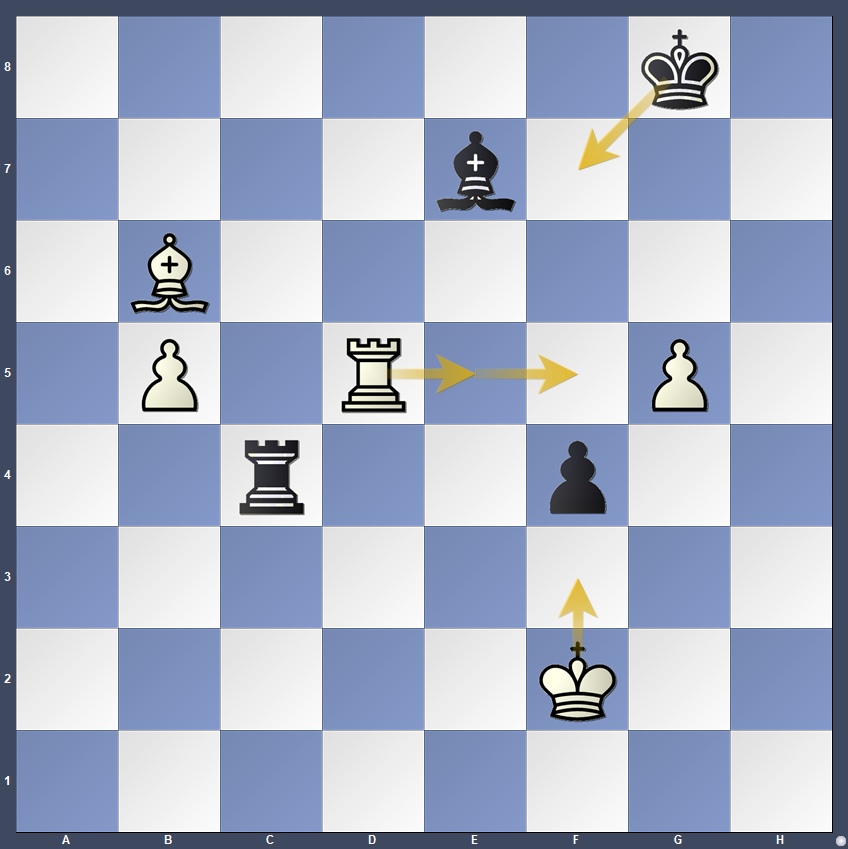
Here, White played 54.Kf3?? (when 54.Re5 or 54.Rf5 would have made life extremely difficult for Black), allowing 54…Kf7 55.Re5
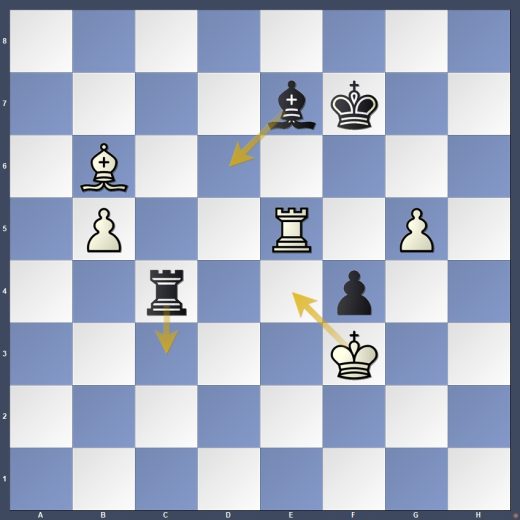
In this final critical moment of the game Black needed to find 55…Bd6, attacking the rook, protecting his passer and activating the king. Instead, Martínez played 55…Rc3+, allowing 56.Ke4 (sidestepping the tactic 56.Kxf4 Bd6), after which White’s pieces coordinated perfectly. The b-pawn eventually promoted, and Black resigned.
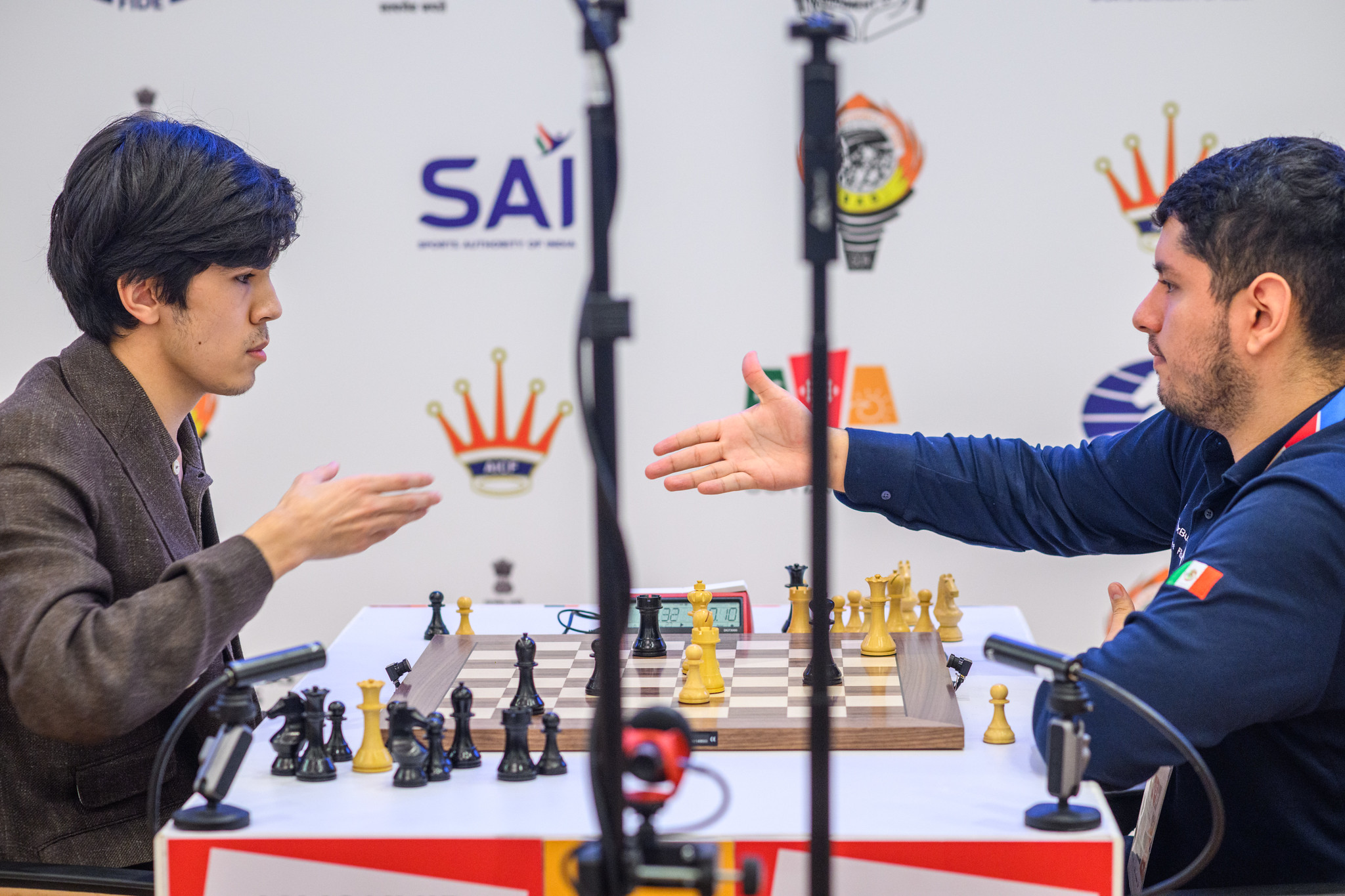
Sindarov, still visibly shaken by the hard-fought match, nonetheless gave an interview, proudly noting that after 20 years, Uzbekistan will once again have a player in the FIDE Candidates. Since he will face teammate Nodirbek Yakkuboev in the semifinals, the match winner will advance to the final, and thus secure a top-two finish. A monumental moment for Uzbek chess.
Sam Shankland (2654) vs Andrey Esipenko (2693)
The day began with Esipenko switching his response as Black in the Queen’s Gambit Declined, choosing 3…Be7 instead of 3…Nf6, avoiding the Exchange Variation. Shankland, determined to “banish demons” in these quarterfinal tiebreaks, entered the game confidently, quickly pushing his h-pawn to h5, though he never achieved an attack. Instead, Black held the edge throughout. The game transitioned into an endgame where White had four pawns, a queen, and a knight, against Black’s four pawns (one a passer), queen, and bishop. Shankland misplayed the position, and the queen and bishop combination proved deadly, with Esipenko finishing with a stylish final sacrifice to take the first point.
The second game began with the Panov variation of the Caro-Kann, often one of the more dynamic choices in an otherwise solid opening. This time roles reversed: Shankland, with Black, gained an advantage early and converted with accuracy.
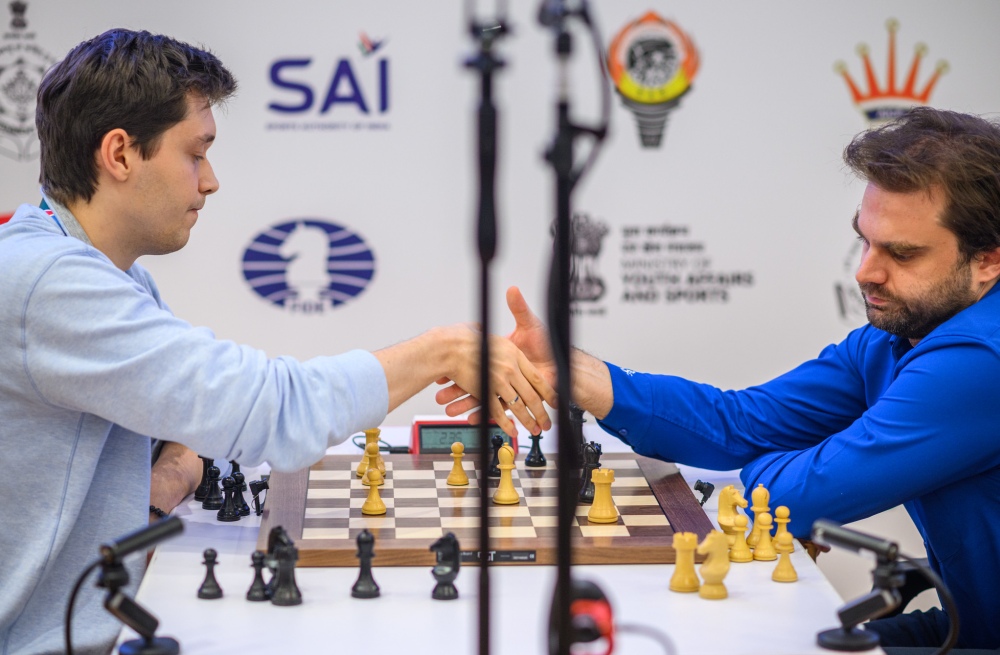
Coming off a loss after being so close to reaching the semifinals would rattle many players, but Esipenko has mentioned in previous interviews that he feels relaxed at this event, carrying no expectations and adopting a laid-back mindset that removes much of the pressure. He said this allowed him to enter the fast rapid games unfazed. In their next encounter, it was déjà vu from game one: Esipenko again opted for the early 3…Be7 line, securing a comfortable position and dictating much of the play. Time trouble brought mutual mistakes, until Shankland made the final decisive error.
Here, the White king needed to run to safety on h3. Indeed, after 45.Kg2 R8b2+ 46.Kh3 Rh1+ 47.Kg4 the position is roughly equal, despite White’s exposed king. Instead, Sam played 45.Ke2?, and capitulated after 45…R8b2+ 46.Rd2 Rxd2+ 0-1
In the must-win final game, Shankland surprisingly chose a Philidor-like setup. Once again, Esipenko gained an edge out of the opening and played practically, increasing his advantage step by step and leaving no counterplay for Black. He converted cleanly, securing his spot in the semifinals.
From 206 players, only four remain: Wei Yi, Nodirbek Yakkuboev, Andrey Esipenko and Javokhir Sindarov, and only three of them will qualify for the FIDE Candidates. Once the semifinals are played, we will already know at least two of those names, and the final stretch of this World Cup will begin.
Tomorrow is a well-deserved rest day for the players, who will return for the semifinals on November 21 at 3 PM local time.
The action can be followed live on the FIDE YouTube Channel, featuring expert commentary by GMs Jan Gustafsson and Peter Leko.
To watch the games in person, tickets can be purchased [HERE]
Written by WIM Charlize van Zyl (Goa, India)
Photos: Michal Walusza



